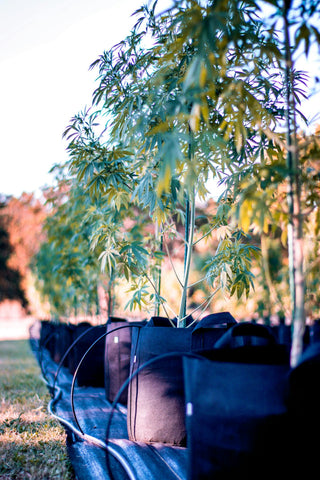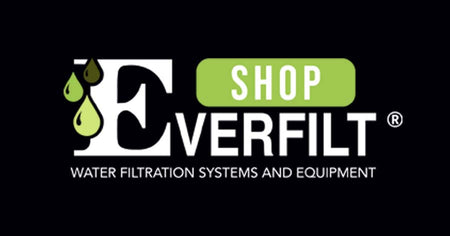
Unveiling Crucial Aspects of Cannabis & Hemp Irrigation
When it comes to cannabis and hemp cultivation, the mastery of irrigation techniques holds paramount importance for growers seeking to foster robust and thriving crops. Understanding the intricacies of water management is essential, given its profound impact on plant health, yield, and overall quality. Whether you're an experienced cultivator or a newcomer to the field, grasping the fundamental principles of irrigating cannabis and hemp is indispensable. Let's delve into five pivotal facts every grower should comprehend:
Water Quality is Vital:
The quality of water employed for irrigation plays a critical role in cannabis and hemp cultivation. These plants exhibit high sensitivity to contaminants and minerals present in water sources. Thus, investing in a dependable water filtration system is imperative to eliminate impurities such as chlorine, heavy metals, and pathogens. Moreover, closely monitoring water pH levels is crucial, as cannabis and hemp thrive in slightly acidic conditions (pH 6.0 to 7.0). Ensuring optimal water quality is essential for fostering vigorous plant growth and preventing issues such as nutrient deficiencies and root diseases.
Precision Irrigation Optimizes Efficiency:
Traditional watering methods are increasingly being supplanted by precision irrigation systems like drip irrigation and micro-sprinklers, revolutionizing cannabis and hemp cultivation practices. These advanced systems deliver water directly to the root zone, minimizing wastage and maximizing nutrient absorption. By providing precise water amounts at the appropriate times, precision irrigation facilitates healthy root development, reduces runoff, and mitigates problems such as overwatering and underwatering. Embracing precision irrigation not only conserves water but also enhances yields and crop quality.
Tailored Irrigation for Various Growth Stages:
Cannabis and hemp progress through distinct growth stages, each characterized by specific water requirements. Adapting irrigation practices accordingly is crucial for optimizing plant health and productivity. During the seedling and vegetative stages, frequent but light watering fosters rapid growth and root establishment. As plants transition to the flowering stage, less frequent but deeper watering sustains optimal bud development. Tailoring irrigation schedules to correspond with growth stages empowers growers to maximize yields and minimize water stress-related issues.
Monitoring & Managing Soil Moisture:
Maintaining the ideal balance of moisture and air in the soil is imperative for robust plant growth. Regularly monitoring soil moisture levels using probes or sensors enables growers to make informed irrigation decisions. Striking the right balance prevents waterlogging, which can lead to root rot, and drought stress, which inhibits growth. Implementing techniques such as mulching and soil amendments enhances water retention and soil structure, ensuring optimal moisture levels throughout the growing cycle.
Embracing Sustainable Irrigation Practices:
 In an era where sustainable agriculture is gaining momentum, adopting eco-friendly irrigation practices is crucial for the cannabis and hemp industry. From rainwater harvesting to water recycling, growers have a plethora of options to reduce water consumption and minimize environmental impact. Integrating organic mulches and cover crops conserves soil moisture and augments water efficiency. By prioritizing sustainability, cultivators not only curb operational costs but also contribute to the long-term health of the environment.
In an era where sustainable agriculture is gaining momentum, adopting eco-friendly irrigation practices is crucial for the cannabis and hemp industry. From rainwater harvesting to water recycling, growers have a plethora of options to reduce water consumption and minimize environmental impact. Integrating organic mulches and cover crops conserves soil moisture and augments water efficiency. By prioritizing sustainability, cultivators not only curb operational costs but also contribute to the long-term health of the environment.Mastering the nuances of cannabis and hemp irrigation is indispensable for achieving optimal yields, quality, and sustainability in cultivation endeavors. Considering factors such as water quality, precision irrigation, growth stage-specific strategies, moisture management, and sustainability empowers growers to optimize crop performance while minimizing resource inputs and environmental footprint. As the cannabis and hemp industry continues to evolve, staying abreast of best irrigation practices remains pivotal for success in this dynamic sector.
